#trenton history
Note
lore question: are the lavender eyes a recessive or dominant trait? does it have to be inherited in an unbroken line for people to be part of the succession, or can it skip a generation?
GABE!!!!! I was really excited to answer this and then I lost momentum and I never answered!

SO in olden times, the lavender eyes were thought to be a sign from the mystics indicating they were fit to lead the country.
After the discovery of genetics and genome mapping, scientists learned that it was actually related to a gene mutation. If the child inherits the mutated gene, they will have lavender eyes. If they don't inherit it, no lavender eyes. There's no way that it can skip a generation but there is a rare possibility that the gene may mutate on it's own. If this were to happen within the royal family, they would be bumped up the line of succession but if it were a commoner, they would not be part of the succession.
11 notes
·
View notes
Text
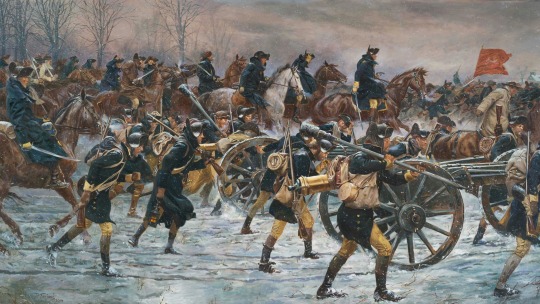
Victory or Death, Advance on Trenton by Don Troiani
#don troiani#art#american revolution#american revolutionary war#alexander hamilton#george washington#artillery#cannons#history#american#america#north america#continental army#trenton#virginia regiment#flag
55 notes
·
View notes
Text
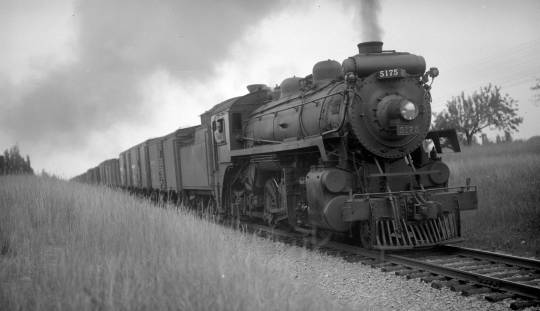
CP train, engine number 5175, engine type 2-8-2
Eastbound freight train; 59 cars, 30 MPH. Photographed: near Trenton, Ont., August 11, 1937.
51 notes
·
View notes
Text
The Feuding Presidents of Westmoreland County, Virginia

Of all the Founding Fathers, it would seem like George Washington and James Monroe would have been the closest comrades. The two men were born just miles apart from one another in Westmoreland County, Virginia. They both were large men physically, not known primarily for their intellect, but instead for their hard work, their courage, and their devotion to the Revolutionary cause. They were the two Presidents who saw the most action during the Revolutionary War and Monroe served bravely under Washington. To top it all off, Washington and Monroe kind of looked like each other, too.
On Christmas Day in 1776, Lieutenant James Monroe was one of those legendary soldiers who famously crossed the frigid Delaware River with General George Washington to engage the British at the Battle of Trenton. Monroe led a charge in that battle to help capture some cannons that were about to be fired upon the Americans and was wounded in the shoulder, a severe injury that would have resulted in him bleeding to death if it weren’t for the fortunate presence of a local doctor in New Jersey. Monroe’s heroism led to a promotion as Captain and he continued serving bravely during the war and was amongst those troops who survived the terrible winter of 1777-1778 at Valley Forge. It would seem as if none of the Presidents could have established more of a bond than the two Virginians who helped fight in the Revolution. Indeed, General Washington wrote that Monroe “has, in every instance, maintained the reputation of a brave, active, and sensible officer.”
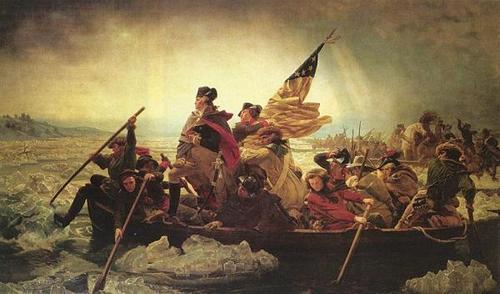
So why did they despise each other? And did James Monroe indirectly help kill George Washington?
After the Revolution, Monroe entered politics and supported the national government being formed under George Washington despite the fact that Monroe had voted against the ratification of the Constitution in 1788. As one of Virginia’s first U.S. Senators, Monroe continued his support of Washington, who was now President, but began to fear that too much power was being placed in the hands of the chief executive and found himself opposing Washington’s Proclamation of Neutrality. When Washington appointed Monroe as Minister to France in 1794, something snapped.
Monroe, like his friend and mentor Thomas Jefferson, loved France. He loved the country itself and, as an American Revolutionary, he found himself in love with the French Revolution. President Washington’s Proclamation of Neutrality insisted on American impartiality towards France and the countries that France was at war with at the time – Britain, The Netherlands, Austria, Prussia, and Sardinia. Monroe was vehemently opposed to neutrality because the French were the first and most important allies of the United States during the Revolution. Plus, James Monroe loved France. In fact, Monroe loved France so much that Secretary of State Edmund Randolph was forced to officially reprimand him due to his glowing compliments about France when Monroe presented his credentials in Paris.
From there, things continued going downhill between Washington and Monroe. Monroe rescued Thomas Paine – another one of America’s early Revolutionaries — who had been thrown into prison in France for criticizing the execution of Louis XVI. Paine was very sick and believed to be close to death, so after securing his release, Monroe arranged for Paine to stay with him at the American Ministerial residence. Paine recovered and proceeded to brutally attack George Washington verbally for allowing him to rot in prison instead of rescuing him as Monroe did. President Washington felt Monroe should have muzzled Paine, or at least repudiated Paine’s disrespectful language towards Washington.
When the United States signed Jay’s Treaty with Great Britain, easing tensions between the U.S. and it’s former colonial power, Washington expected Monroe to be a good Federalist and support the rather unpopular treaty. Monroe opposed it and refused to speak out in support of the treaty. His silence on Jay’s Treaty was the last straw for Washington. The President was furious and noting that he expected a diplomat who would “promote, not thwart, the neutral policy of the Government” recalled Monroe as Minister and ordered him to return to the United States. When Monroe learned of his recall, he said that Washington was “insane”.
Over the next few years, Monroe spent his time at home in Virginia and worked to undermine Washington and criticize the first President. Monroe questioned Washington’s capacity as a leader and felt that he had sold out the French, who had done so much to help the Americans during the Revolutionary War. Washington felt that Monroe was unqualified to critique his Presidency and that Monroe was a hopeless Francophile. In 1797, long before Monroe was considered to be Presidential timber, Washington cautioned, “If Mr. Monroe should ever fill the Chair of Government he may (and it is presumed he would be well enough disposed) let the French Minister frame his speeches”. Washington added, “There is abundant evidence of his being a mere tool in the hands of the French government.”
Monroe wasn’t ready for the “Chair of Government” on a national level, but after Washington retired to Mount Vernon and handed the Presidency over to John Adams, Monroe decided to aim for the “Chair of Government” on a state level. In 1799, Monroe campaigned to become Governor of Virginia and as Monroe’s candidacy was promoted by his friends and supporters, 67-year-old George Washington maintained his estate in Virginia in retirement and tried to do whatever he could to prevent Monroe’s rise. If Monroe was going to be Governor of Washington’s beloved Virginia, then it would practically have to happen over Washington’s dead body.
Washington wasn’t powerful enough to prevent Virginia’s state legislature from electing Monroe as Governor in December 1799, however. On a cold and snowy day, George Washington learned of his former lieutenant’s victory and took off on horseback to tend to Mount Vernon. When Washington returned to his home, cold and soaking wet, he got into an animated discussion with guests about Monroe’s victory and angrily denounced the newly elected Governor. Washington continued his discussions without removing his wet clothing. Already ill with a cold, Washington’s illness worsened. On December 14, 1799, George Washington said his last words, “Tis well” and died.
Monroe continued his public service as Governor of Virginia, a special envoy to France to secure the Louisiana Purchase for Thomas Jefferson, Minister to Great Britain, Governor of Virginia once again, and Secretary of State and Secretary of War under his close friend James Madison. In 1817, it was finally Monroe’s turn to take the “Chair of Government” as Washington had so feared. Supported by Jefferson and Madison, Monroe easily defeated Rufus King and became President, kicking off “The Era of Good Feelings” where Monroe’s popularity was almost unparalleled by any other President and the nation was unified and free of almost any partisan bickering.
In 1820, Monroe ran for re-election and was so enormously popular that no one dared to run against him. In Massachusetts, 85-year-old John Adams -- a stalwart Federalist and George Washington's Vice President -- even supported Monroe. Yet Washington got the last laugh. Running unopposed, Monroe was not only certain of victory, but it looked like he would become the only President besides Washington be elected unanimously by the Electoral College. However, Governor William Plumer of New Hampshire decided to deny Monroe that honor and reserve it for Washington and Washington only. Some stories allege that Plumer did it solely to prevent Monroe from joining Washington as unanimous Electoral College victors and some stories note that Plumer truly disliked President Monroe and voted for John Quincy Adams as a protest. Either way, the records will always show that George Washington was the only President elected unanimously and I think it's pretty clear that Washington would have appreciated that Monroe of all people was prevented from joining him in that exclusive club.
#History#Presidents#George Washington#President Washington#General Washington#James Monroe#President Monroe#Death of George Washington#Virginia#Virginia Presidents#Westmoreland County#1820 Election#American Revolution#Revolutionary War#Crossing the Delaware#Washington Crossing the Delaware#Washington's Crossing of the Delaware#Battle of Trenton#Continental Army#Military History#Presidential Rivals#Politics#Presidential Politics#Presidential Relationships#Presidential Feuds#Federalist Party#Proclamation of Neutrality#France#French Revolution#Thomas Paine
34 notes
·
View notes
Photo

RDG 868
West Trenton, NJ
6/1/1976
#commuter train#cr#conrail#septa#southeastern pennsylvania transportation authority#rdg#reading company#1976#philadelphia#trains#passenger train#history#west trenton#new jersey
18 notes
·
View notes
Text
Ok I’m curious. Did anyone else just assume Trenton Lee Stewart was British
#I really don’t know why??#It’s just how he writes I think#also the use of spectacles vs glasses#and also the name Trenton lee Stewart sounds like some British guy in your history book idk#anyways yeah he’s from Arkansas in the US#the mysterious benedict society#trenton lee stewart
25 notes
·
View notes
Text
Home Rubber Company
©️ Mark Krajnak | JerseyStyle Photography
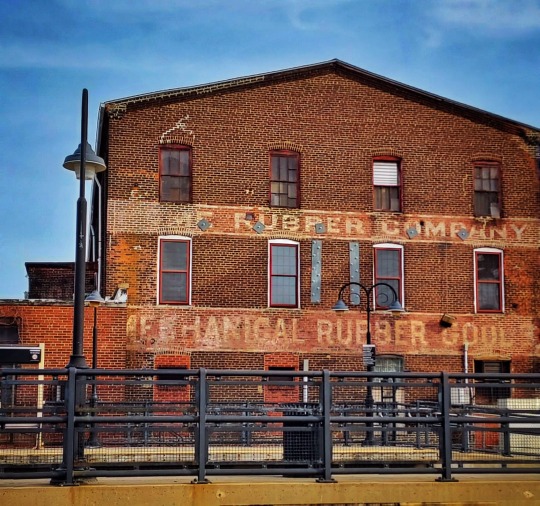
6 notes
·
View notes
Link
LETTERS FROM AN AMERICAN
December 25, 2022
Heather Cox Richardson
In the summer heat of July 1776, revolutionaries in 13 of the British colonies in North America celebrated news that the members of the Second Continental Congress, meeting in Philadelphia, had adopted the Declaration of Independence. In July, men had cheered the ideas that “these United Colonies are, and of Right ought to be Free and Independent States,” and that, in contrast to the tradition of hereditary monarchy under which the American colonies had been organized, the representatives of the thirteen united states intended to create a nation based on the idea “that all men are created equal” and that governments were legitimate only if those they governed consented to them.
But then the British responded to the colonists’ fervor with military might. They sent reinforcements to Staten Island and Long Island and by September had forced General George Washington to evacuate his troops from New York City. After a series of punishing skirmishes across Manhattan Island, by November the British had pushed the Americans into New Jersey. They chased the colonials all the way across the Delaware River into Pennsylvania.
By mid-December the future looked bleak for the Continental Army and the revolutionary government it backed. The 5,000 soldiers with Washington who were still able to fight were demoralized from their repeated losses and retreats, and since the Continental Congress had kept enlistments short so they would not risk a standing army, many of the men would be free to leave the army at the end of the year, weakening it even more.
As the British troops had taken over New York City and the Continental soldiers had retreated, many of the newly minted Americans outside the army had come to doubt the whole enterprise of creating a new, independent nation based on the idea that all men were created equal. Then things got worse: as the American soldiers crossed into Pennsylvania, the Continental Congress abandoned Philadelphia on December 12 out of fear of a British invasion, regrouping in Baltimore (which they complained was dirty and expensive).
By December, the fiery passion of July had cooled.
“These are the times that try men’s souls,” read a pamphlet published in Philadelphia on December 19. “The summer soldier and the sunshine patriot will, in this crisis, shrink from the service of their country; but he that stands by it now, deserves the love and thanks of man and woman.”
The author of The American Crisis was Thomas Paine, whose January 1776 pamphlet Common Sense had solidified the colonists’ irritation at the king’s ministers into a rejection of monarchy itself, a rejection not just of King George III, but of all kings.
Now he urged them to see the experiment through. He explained that he had been with the troops as they retreated across New Jersey and, describing the march for his readers, told them “that both officers and men, though greatly harassed and fatigued, frequently without rest, covering, or provision, the inevitable consequences of a long retreat, bore it with a manly and martial spirit. All their wishes centred in one, which was, that the country would turn out and help them to drive the enemy back.”
For that was the crux of it. Paine had no doubt that patriots would create a new nation, eventually, because the cause of human self-determination was just. But how long it took to establish that new nation would depend on how much effort people put into success. “I call not upon a few, but upon all: not on this state or that state, but on every state: up and help us; lay your shoulders to the wheel; better have too much force than too little, when so great an object is at stake,” Paine wrote. “Let it be told to the future world, that in the depth of winter, when nothing but hope and virtue could survive, that the city and the country, alarmed at one common danger, came forth to meet and to repulse it.”
In mid-December, British commander General William Howe had sent most of his soldiers back to New York to spend the winter, leaving garrisons across the river in New Jersey to guard against Washington advancing.
On Christmas night, having heard that the garrison at Trenton was made up of Hessian auxiliaries who were exhausted and unprepared for an attack, Washington crossed back over the icy Delaware River with 2400 soldiers in a winter storm. They marched nine miles to attack the garrison, the underdressed soldiers suffering from the cold and freezing rain. Reaching Trenton, they surprised the outnumbered Hessians, who fought briefly in the streets before they surrendered.
The victory at the Battle of Trenton restored the colonials’ confidence in their cause. Soldiers reenlisted, and in early January they surprised the British at Princeton, New Jersey, driving them back. The British abandoned their posts in central New Jersey, and by March the Continental Congress moved back to Philadelphia. Historians credit the Battles of Trenton and Princeton with saving the Revolutionary cause.
“Tyranny, like hell, is not easily conquered,” Paine wrote, “yet we have this consolation with us, that the harder the conflict, the more glorious the triumph. What we obtain too cheap, we esteem too lightly: it is dearness only that gives every thing its value.”
—
Notes:
https://allthingsliberty.com/2016/01/a-brief-publication-history-of-the-times-that-try-mens-souls/
https://history.state.gov/departmenthistory/buildings/section4
LETTERS FROM AN AMERICAN
HEATHER COX RICHARDSON
#Christmas#history#Heather Cox Richardson#Letters From An American#Battle of Trenton#Tyranny#Thomas Paine
2 notes
·
View notes
Text
Apparently my bar is in hell.
Yes it is too much to ask for the next person I date to even like going go museums with me.
#meri mumbles#rose speaks#amrev#amrev history#If anyone is reading this Im thinking about checking out Philadelphia and Trenton NJ this summer and wont mind dinner or coffee
0 notes
Text
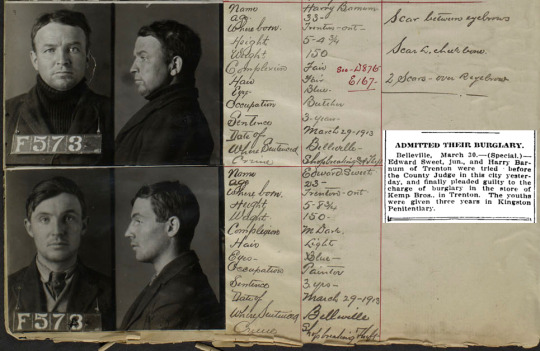
"ADMITTED THEIR BURGLARY." Toronto Globe. March 31, 1913. Page 2.
----
Belleville, March 30.-(Special.) - Edward Sweet, jun., and Harry Barnum of Trenton were tried before the County Judge in this city yesterday, and finally pleaded guilty to the charge of burglary in the store of Kemp Bros.. in Trenton. The youths were given three years in Kingston Penitentiary.
[Sweet and Barnum were not youth in any meaningful sense - Barnum was 33 and Sweet 23. The former was a butcher and the latter a painter. Barnum was convict #F-573 and Sweet convict #F-574. Sweet worked in the tin and paint shop, and he was never reported for a rule infraction. He was paroled in early 1915. Barnum was reported a number of times for serious infractions - insolence to staff and refusals to work. He was put in solitary for 7 days in March 1914, and again for a week in July 1914. He lost 25 days remission at other times. He was released in January 1916.]
#belleville#trenton#county police court#burglary#burglars#shopbreaking#shopbreakers#sentenced to the penitentiary#kingston penitentiary#crime and punishment in canada#history of crime and punishment in canada
0 notes
Text



History and more photos under the cut!
Early Life
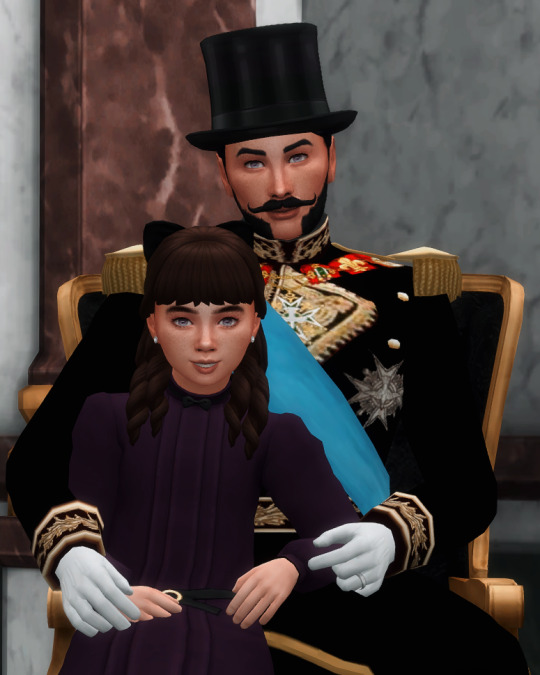
Emelina was the only child of King Edmund II and his late wife, Lady Cora. She spent her first years with nannies as her father through himself into his duties as king. Once old enough, Emelina began joining him in meetings and on official engagements. Many thought it was strange to have a child, a girl, join the meetings but they soon realized she was wise beyond her years. On her 12th birthday, Emelina was bestowed the title, Princess of Westburg, officially making her the heir to the throne.

Love Life

Emelina was set to be the 4th Queen Regnant in Trenton history and thanks to her father, would be the first Queen to reign independently of her husband.
Emelina met her future husband, Ricardo Sutherland at a ball thrown in honor of her 21st Birthday. Ricardo was part of Trenton Nobility but held no titles of his own. He was also an active member of the Trenton Navy. Emelina and Ricardo were smitten with one another but were unable to marry right away. Ricardo was to ship out on a 5 year assignment. During their time apart, Emelina and Ricardo exchanged letters back and forth. One year after Ricardo returned, he and Emelina were wed. After the wedding, Ricardo was styled as: Lord Ricardo, Prince of Westburg.

Married Life and Early Years as Monarch
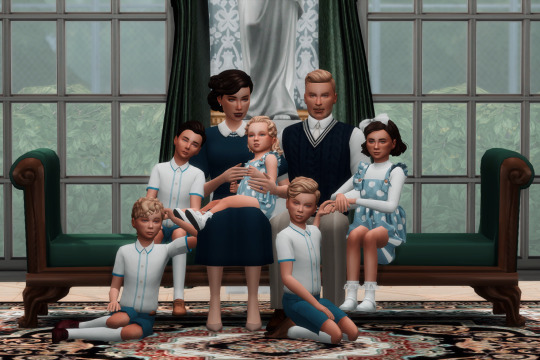
Two years after their wedding, Emelina and her husband welcomed twin boys: Efran (an heir) and Marshall. When the twins were a year old and Emelina was pregnant with their eldest daughter (Danielle), King Edmund passed away unexpectedly in his sleep. While Emelina had spent countless hours learning from her father, nothing prepared her for what was ahead. Emelina's advisors encouraged her to wait to have her coronation until after she gave birth. Emelina agreed with them but later regretted this decision. The Ingebretson family used this delay as an opportunity to sow seeds of doubt into the people of Trenton. Lord Euan Ingebretson, Duke of Lerwick was said to have stated:
"A Monarch should always put duty to the people over duty to themselves and their family. In delaying the coronation for a pregnancy, Queen Emelina is telling us that in her mind, family comes before the crown"
Emelina and Ricardo agreed that it was best for him to focus on the family so that Emelina could strengthen her reputation and show the people she was their to serve them. Over the next few years, things seemed to settle down a bit, though there were still some that questioned her ability to rule.
Four years after becoming queen, Emelina gave birth to their fourth child, Prince Ezra, and two years after he was born, she gave birth to their fifth and final child, Princess Natalia.

Tragic Years
Eleven years after taking the throne, Queen Emelina experienced one of the most tragic events in Trenton History. During a state dinner, Ricardo, Efran, Marshall, Danielle, and Natalia were poisoned. A radical Trentonian, that wanted the Ingebretson's on the throne, slipped poison into the dessert of the Royal Family. By some miracle, Emelina and Ezra were spared the poison as they were allergic to strawberries and the poison was hidden in a strawberry tart.
Emelina was heartbroken and enraged at the act of malice against her family. What type of person would kill innocent children in their quest for power. Emelina knew that she had a decision to make; give up her throne to properly mourn the loss of her husband and children or put that energy into ruling Trenton and preparing her remaining son to one day be King. Though she had no proof, Emelina knew that Lord Euan was behind the heinous act. If she were to give up the throne to him, she would be doing exactly what he wanted. Emelina remained Queen of Trenton but was never again seen dressed in a color other than black.

Remaining Years
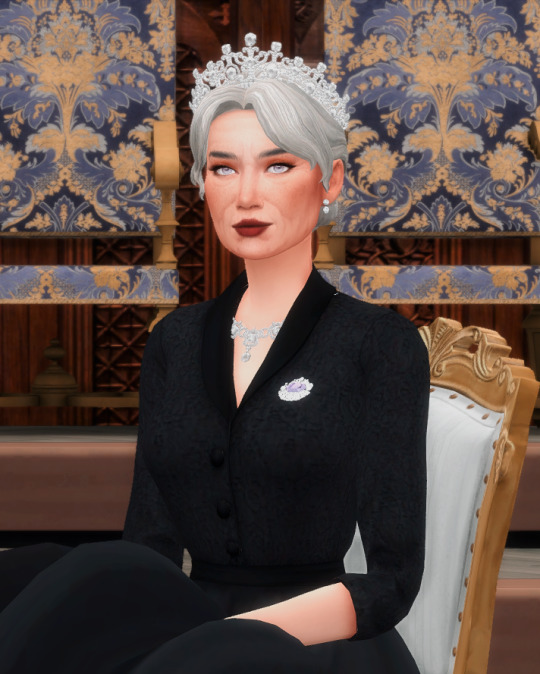
Emelina became one of the most well respected and well loved monarchs in Trenton History. She was admired for her strength, compassion and tenacity. She was a strong advocate for equal rights and helped continue her father's work of modernizing Trenton's outdated laws and policies.
Emelina is Trenton's longest reigning monarch, having sat on the throne for 62 years. Emelina passes away peacefully at the age of 92. When her son Ezra spoke of her death, he told the people not to be sad, for she was finally reunited with her husband and other children.
#ts4#ts4 simblr#ts4 legacy#simblr#sims 4#ts4 screenshots#the sims 4#sims 4 royal simblr#ts4 storytelling#ts4 royal simblr#ts4 royal story#ts4 royalty#ts4 royal family#trenton extras#moments in history#sim: emelina rutherford#sim: ricardo rutherford#sim: efran rutherford#sim: danielle rutherford#sim: ezra rutherford#sim: natalia rutherford
32 notes
·
View notes
Text
This Day in History: October 1st, 1914
MRS. RAPPLEYEA NARROWLY ESCAPES DEATH
MRS. RAPPLEYEA NARROWLY ESCAPES DEATH IN FIRE
Aged Woman Who Lived Alone Has Her Home Destroyed – Nothing Saved – Other Local News
MILLTOWN, Oct. 1 – Mrs. Kate Rappleyea, widow of the late Jacob Rappleyea and better known as “Aunt Kate,” had a narrow escape yesterday. While resting in the front room of her home on Riva Avenue after lunch, awaiting water to heat for washing dishes, she heard a…
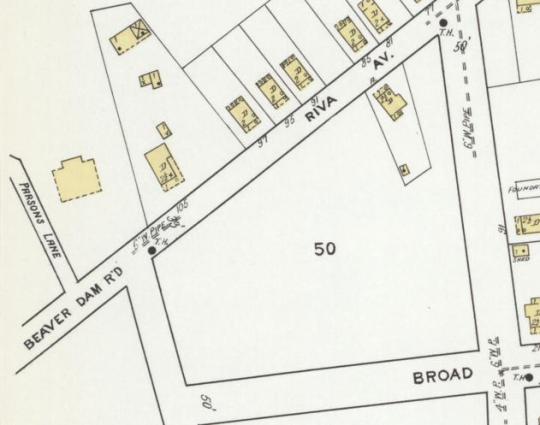
View On WordPress
0 notes
Text

PRR train, engine number 6308, engine type 2-8-2
Eastbound, freight train; 75 cars, 45 MPH. Photographed: near Trenton, N.J., August 11, 1932.
41 notes
·
View notes
Text
American Auto Trail-Whiskey Road (Aiken to Trenton SC)
American Auto Trail-Whiskey Road (Aiken to Trenton SC)
https://youtu.be/3-al61Zju2w
This route explores South Carolina Highway 19, nicknamed the Whiskey Road, from Aiken to Trenton.
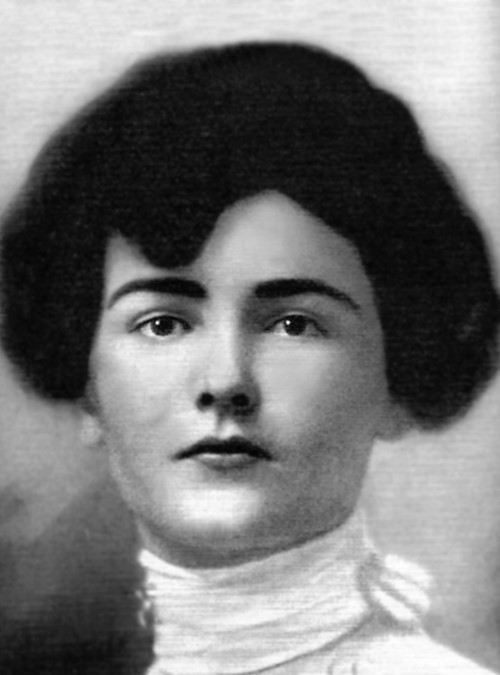
View On WordPress
#4K#aiken#american history#Auto trail#driving video#edgefield#Eureka#Highway 19#Marie Seigler#Palmetto State#road travel#slow travel#south carolina#Trenton#Whiskey Road
1 note
·
View note
Text
38 years ago today
Milo Aukerman of the Descendents at City Gardens, Calhoun Street in Trenton, New Jersey, January 26, 1986.
Photo by Ken Salerno
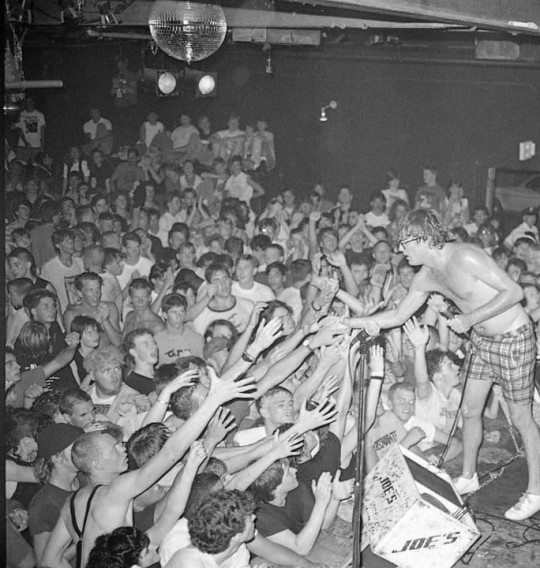
#punk #punks #punkrock #descendents #hardcorepunk #miloaukerman #history #punkrockhistory #otd
30 notes
·
View notes
Video
5 of Amtrak E60CHs by Marty Bernard
Via Flickr:
AMTK 960 with Train 161, the Chesapeake, Trenton, NJ on January 23, 1977
#the chesapeake#amtk#amtrak#1977#new york city#washington dc#trains#passenger train#history#trenton#new jersey
15 notes
·
View notes